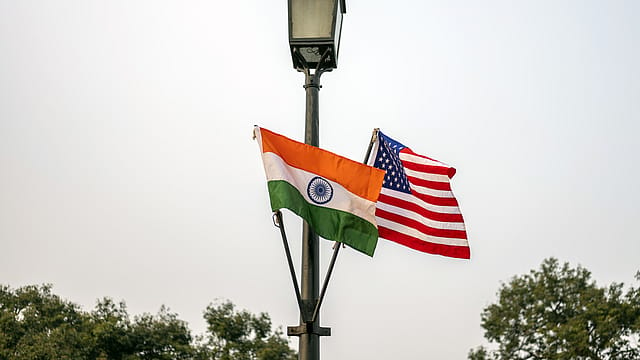USTR flags high tariffs, complex trade rules in India as Trump readies new retaliatory measures
ADVERTISEMENT

The U.S. Trade Representative (USTR) has published a 15-page section on the challenges U.S. companies face in India regarding the trade of goods and services in its newly released 2025 National Trade Estimate (NTE) Report. The trade and regulatory challenges listed in the report cover issues related to tariffs, non-tariff barriers, intellectual property, services, digital trade, and transparency.
The NTE comes at a time when U.S. President Donald Trump is planning to announce his next set of retaliatory tariffs on a range of goods imported into the country from key trade partners.
One of the key concerns expressed by the USTR is India’s high tariffs on imported goods. The report states that India’s average Most-Favoured-Nation (MFN) applied tariff rate was 17.0 percent—the highest among major world economies—with an average applied tariff rate of 13.5 percent for non-agricultural goods and 39.0 percent for agricultural goods.
The report highlights India's high taxes on alcoholic drinks (150%) and walnuts (100%). It also notes that India imposes very high basic customs duties (in some cases exceeding 20 percent) on drug formulations, including life-saving drugs and finished medicines listed on the World Health Organization’s list of essential medicines. High tariff rates also present significant barriers to trade in other agricultural goods and processed foods, such as poultry, potatoes, citrus fruits, almonds, pecans, apples, grapes, canned peaches, chocolate, cookies, frozen French fries, and other prepared foods used in fast-food restaurants, the report states.
On challenges related to customs barriers and trade facilitation, the NTE Report states that India’s tariff rates are announced with the annual budget and are modified on an ad hoc basis through notifications in the Gazette of India without opportunities for public comment. “The tariff rates are subject to numerous exemptions that vary according to the product, user, intended use, or specific export promotion programme. This renders India’s customs system complex and open to administrative discretion,” it adds.
The Indian government’s decision to make Bureau of Indian Standards (BIS) certifications mandatory for quality control in an increasing number of sectors—including chemicals, medical devices, batteries, electronics, food, and textiles—has also been criticised for not being fully aligned with international standards and for requiring cumbersome compliance formalities.
However, some of the issues raised in the report, including the equalisation levy on online advertising, have already been addressed by Indian authorities.